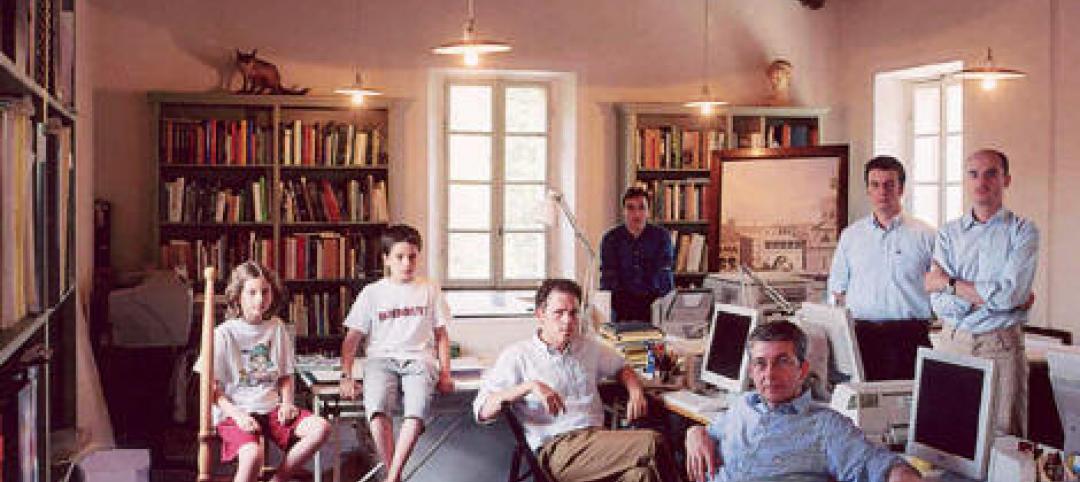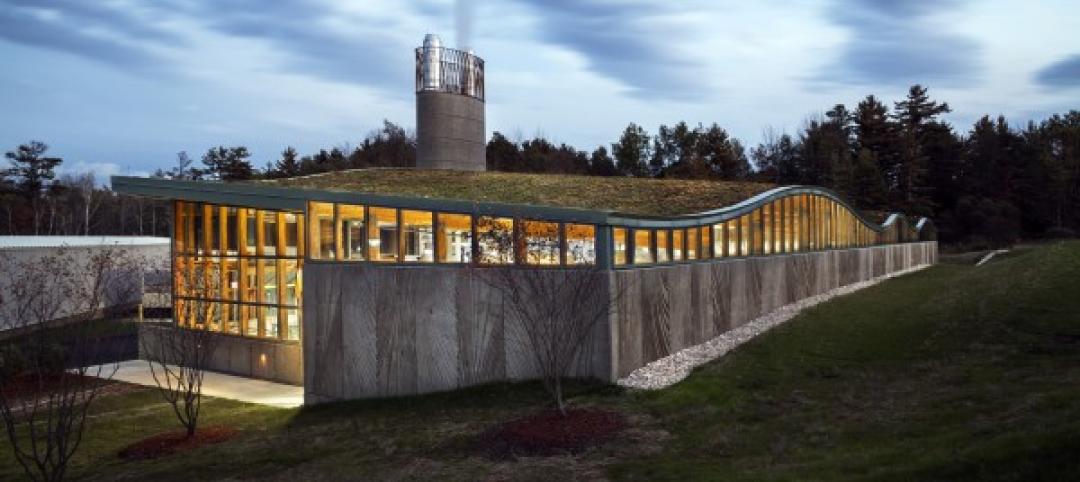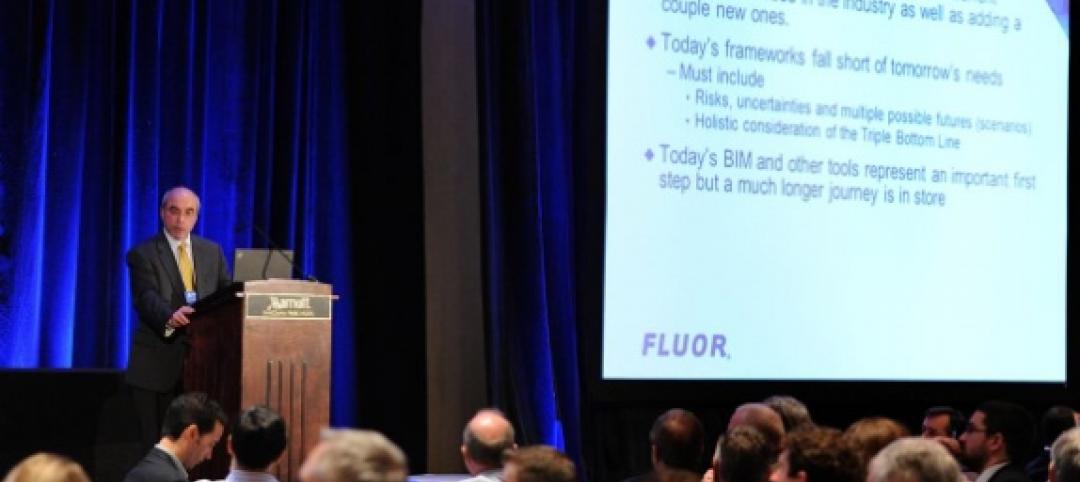Washington, D.C. – May 12, 2011 – The U.S. Green Building Council (USGBC) and the American Institute of Architects (AIA) today unveiled Local Leaders in Sustainability: A Special Report from Sundance, which outlines a five-point national action plan that mayors and local leaders can use as a framework to develop and implement green schools initiatives.
“This report should serve as a guidepost for many communities throughout the country that are looking for ways to implement green initiatives but fear the expense involved,” said AIA President Clark Manus, FAIA. “In reality, the average school is 42 years old, and energy inefficiencies cost it approximately $100,000 a year, money that could be better spent on teachers, education materials, books or computers.”
The steps outlined in the five-point plan include tangible action steps and are based on the conversations that took place at Sundance and successful green schools initiatives from across the United States and include:
1. Connect with the Green Schools Movement
2. Engage Stakeholders and Raise Awareness
3. Build Community Support and Capacity
4. Make it Happen: Benchmarking, Policy and Financing
5. Celebrate Success
The report also provides a comprehensive review of the benefits of green schools; a summary of local, state and federal policy solutions; leadership profiles of green school advocates; and case studies from both large cities and small communities. Together, these resources serve as a roadmap on the journey to green schools.
This special report stems from outcomes at the Greening of America’s Schools Summit, which took place November 2010 at the Redford Conference Center at Sundance, Utah. USGBC and its Center for Green Schools; the Redford Center, founded by Robert Redford; and ICLEI – Local Governments for Sustainability USA, collaborated to host the Greening of America’s School Summit, which brought U.S. mayors and superintendents from cities across the country, along with leaders in green design, education, arts and green school advocacy to take part in an intimate discussion on the importance of greening school districts.
“Through the greening of America’s schools, we have the chance to improve the health and education of our children, inspire future leaders and create a stronger America,” said Rick Fedrizzi, President, CEO and Founding Chair, USGBC. “Sundance was just the beginning. This comprehensive blueprint provides local policy makers and community members ways in which they too can accelerate green schools in their areas.”
“The Greening of Americas Schools Summit marked an important first step in realizing that the environmental quality of our schools is essential to our future and long-term well-being. As a result, Mayors and Superintendents came together to chart a new course toward healthy, sustainable schools where our children can grow and excel. We must now take this blueprint into action so that every child in America can attend a green school within this generation,” said Martin J. Chávez, Executive Director, ICLEI - Local Governments for Sustainability USA.
The report was issued this week at the 2011 AIA National Convention and Design Exhibition in New Orleans and USGBC’s annual Government Summit in Washington, D.C. It can be downloaded free-of-charge from centerforgreenschools.org/actionplan.
About The American Institute of Architects
For over 150 years, members of the American Institute of Architects have worked with each other and their communities to create more valuable, healthy, secure, and sustainable buildings and cityscapes. Members adhere to a code of ethics and professional conduct to ensure the highest standards in professional practice. Embracing their responsibility to serve society, AIA members engage civic and government leaders and the public in helping find needed solutions to pressing issues facing our communities, institutions, nation and world.
About the U.S. Green Building Council
The Washington, D.C.-based U.S. Green Building Council is committed to a prosperous and sustainable future for our nation through cost-efficient and energy-saving green buildings. With a community comprising 79 local affiliates, 16,000 member companies and organizations, and more than 155,000 LEED Professional Credential holders, USGBC is the driving force of an industry that is projected to contribute $554 billion to the U.S. gross domestic product from 2009-2013. USGBC leads an unlikely diverse constituency of builders and environmentalists, corporations and nonprofit organizations, elected officials and concerned citizens, and teachers and students.
Related Stories
Sponsored | | Mar 21, 2014
Kameleon Color paint creates color-changing, iridescent exterior for Exploration Tower at Port Canaveral
Linetec finishes Firestone’s UNA-CLAD panels, achieving a one-of-a-kind, dynamic appearance with the first use of Valspar’s new Kameleon Color
| Mar 21, 2014
Forget wood skyscrapers - Check out these stunning bamboo high-rise concepts [slideshow]
The Singapore Bamboo Skyscraper competition invited design teams to explore the possibilities of using bamboo as the dominant material in a high-rise project for the Singapore skyline.
| Mar 21, 2014
Pier Carlo Bontempi to receive Richard H. Driehaus Prize from Notre Dame
Established in 2003 by the Notre Dame School of Architecture, the $200,000 Richard H. Driehaus Prize is awarded to a living architect whose work embodies the highest ideals of traditional and classical architecture in contemporary society, and creates a positive cultural, environmental and artistic impact.
| Mar 21, 2014
How to get more referrals
If you’re having a hard time attracting new referrals, here are a few techniques for increasing the number of interactions with potential clients.
| Mar 20, 2014
Common EIFS failures, and how to prevent them
Poor workmanship, impact damage, building movement, and incompatible or unsound substrate are among the major culprits of EIFS problems.
| Mar 20, 2014
D.C. breaks ground on $2B mega waterfront development [slideshow]
When complete, the Wharf will feature approximately 3 million sf of new residential, office, hotel, retail, cultural, and public uses, including waterfront parks, promenades, piers, and docks.
| Mar 20, 2014
13 dazzling wood building designs [slideshow]
From bold structural glulam designs to striking textured wall and ceiling schemes, these award-winning building projects showcase the design possibilities using wood.
| Mar 20, 2014
Fluor defines the future 7D deliverable without losing sight of real results today
A fascinating client story by Fluor SVP Robert Prieto reminds us that sometimes it’s the simplest details that can bring about real results today—and we shouldn’t overlook them, even as we push to change the future state of project facilitation.
| Mar 19, 2014
Architecture Billings Index shows slight improvement
The American Institute of Architects (AIA) reported that the February ABI score was 50.7, up slightly from a mark of 50.4 in January.
| Mar 19, 2014
Gehry, Zaha, Foster, Meier: Vote for your top 'starchitect' in this March Madness design legends tourney
Fast Company's Bracket Madness tournament pits 32 designers against each other to see who truly is the world's greatest living designer.
















